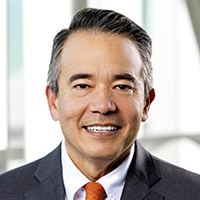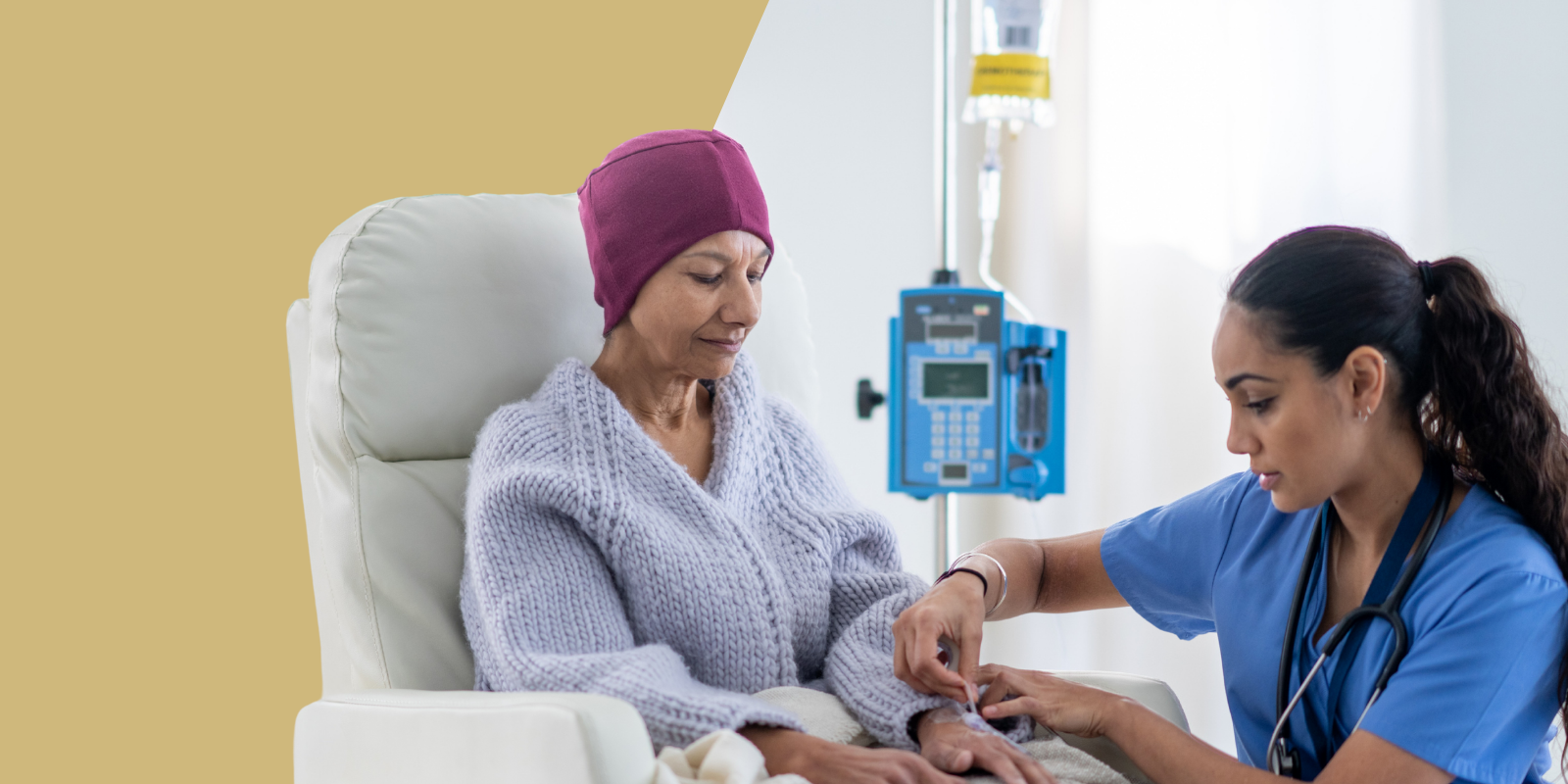When Nathan Hammond traveled to Colorado from Fort Wayne, Indiana, to consult with University of Colorado Cancer Center specialists about his newly diagnosed esophageal cancer, his first stop was the esophageal and gastric cancer multidisciplinary clinic, where patients are seen by doctors from multiple specialties — including surgical oncologists, medical oncologists, radiation oncologists, pathologists, dietitians, and genetic counselors — all at the same time.
“That instilled a lot of confidence,” Hammond says. “Everybody specifically had experience with esophageal cancer, from the oncologists and the radiologists to the dietitians and the nurses. The doctors in Fort Wayne didn’t have that specialization.”
Constantly improving care
The CU Cancer Center’s multidisciplinary clinics — which also include clinics for pancreatic cancer, breast cancer, colorectal cancer, kidney cancer, liver cancer, and many others — are just one way in which the center works to provide optimal care to patients, says CU Cancer Center director Richard Schulick, MD, MBA.
“You can have all the methodologies and techniques in the world for treating patients, but if you don't deploy them appropriately, or give them in the right sequence in the right patient, then you're not really using all the resources available,” Schulick says.
|
Learn about how the CU Cancer Center is helping in each of the eight goals of the National Cancer Institute’s National Cancer Plan aimed at changing how we know cancer today. |
Delivering optimal care is a key part of the CU Cancer Center’s mission to prevent and conquer cancer through innovation, discovery, prevention, early detection, education, and multidisciplinary care.
“Cancer care is no longer one event in which you come in, get a treatment, and you’re gone,” Schulick says. “Many patients are in treatment for six months or a year or more, receiving a range of treatments that keep the patient ahead of their disease. And people are living longer, better lives. In the 1970s, the overall long-term survival rate for cancer was about 50%; now it’s 68%. This means that we have more and more survivors, which is a great problem to have, but it also means that we have to make sure we take care of them, helping patients to manage the after-effects of their treatments.”
Joining in a national goal
Delivering optimal care isn’t just a goal at the CU Cancer Center; it’s also one of eight goals in the National Cancer Institute’s (NCI’s) National Cancer Plan. Recently unveiled, the plan outlines goals designed to support the aims of President Joe Biden’s Cancer Moonshot initiative, which proposes to reduce cancer deaths in the U.S. by 50% over the next 25 years.
The NCI’s strategies for improving the delivery of optimal care include:
- Advancing how cancer care is delivered, including through research identifying and addressing inequities to improve prevention, diagnosis, treatment, and survivorship.
- Increasing collaboration between the NCI and other government and private groups to capitalize on data, resources, and expertise that help enable cancer care delivery research.
- Working across government agencies and with private companies to promote widespread use of research-proven ways to lower cancer death rates and improve survivor well-being.
- Identifying and put into effect best practices for public engagement, communication, and health literacy related to cancer risk, prevention, treatment, and survivorship that are tailored to community needs.
As one of 71 cancer centers around the country recognized as NCI-designated cancer centers due to their strengths in research, prevention, diagnosis, and treatment, the CU Cancer Center shares in the NCI’s cancer goals, including goals around making optimal care to all those who need it, not just those who can afford it.
“We want to make sure that we equitably take care of all citizens, not just citizens who have more money or are in higher socioeconomic classes,” Schulick says. “All Americans deserve appropriate access to prevention, early detection, and great therapies.
That’s why the CU Cancer Center is increasing its outreach to rural and Hispanic populations in Colorado, and it’s why the cancer center’s Office of Community Outreach and Engagement has created a Community Advisory Council (CAC) that works to close the gap in health disparities and reduce the incidence and mortality rates from cancer and other diseases. The CAC engages with community members across the state to improve knowledge and awareness of cancer risk factors, screening services, and treatment options. Its membership includes representation from the Colorado Department of Public Health and Environment, the Colorado Cancer Coalition, High Plains Community Health Center, Center for Health Progress, and the Colorado Black Health Collaborative.
“Sometimes people in science and academia and government are accused of being in an ivory tower — the perception is that they sit away from the populations that they're supposed to serve and make decisions that are irrelevant,” says CAC member Dianne Primavera, Colorado’s lieutenant governor. “Reaching out to the community and making sure that we're meeting their needs is really important in cancer treatment, and the Community Advisory Council shows the CU Cancer Center’s commitment to making sure that what they do really reaches the populations they serve.”
Importance of research
Schulick says the CU Cancer Center works to deliver optimal care in other ways as well, including through clinical trials of new treatments and research on every stage and aspect of cancer.
“Research is what moves the ball,” he says. “If we keep doing what we're doing today, we can’t expect improvements over the next 25 years. The only way to get the mortality and the morbidity from cancer down is to find better methods for prevention and early detection, better therapies, and better multidisciplinary care. You have to do research in all these areas to understand what works and what does not work and where we should put our resources and efforts.”




